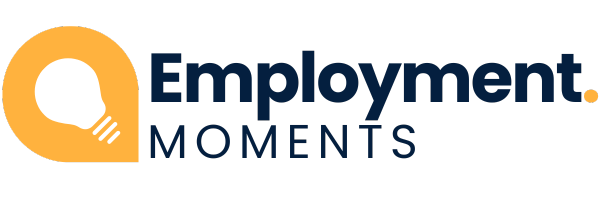The job market is changing fast, thanks to new technologies and what people want. It’s important to know what’s happening to find good jobs. Some jobs are disappearing, but new ones are coming up.
Studies by the U.S. Bureau of Labor Statistics show how big of a role tech plays. As jobs change, it’s key to know which ones are at risk. This way, people can get ready for a future where being flexible is a must.
Understanding the Impact of Technology on Job Markets
Technology is changing job markets all over the world. Companies are using automation and artificial intelligence more. This means workers have to learn new skills and keep up with changing trends.
The Role of Automation
Automation is changing many industries, like manufacturing and logistics. It’s estimated that up to 800 million jobs could change by 2030. Companies use robots and automated systems to work better and save money.
Workers need to learn new tech skills to stay ahead. They must be ready for the future of work.
Artificial Intelligence and Job Replacement
Artificial intelligence is changing jobs fast. AI is not just for simple tasks; it helps with big decisions too. By the early 2030s, almost 38% of U.S. jobs could be at risk from AI.
Jobs in data analysis and digital marketing are growing thanks to AI. But, jobs in customer service that can be automated are uncertain.
Shifts in Consumer Behavior and Employment
Online shopping is changing jobs too. With more people shopping online, jobs in logistics and digital marketing are becoming more important. Employers want people who can handle online customer service well.
These changes show workers need to keep learning and adapting. They must develop new skills to succeed in today’s job market.
Careers that will disappear
Technology keeps getting better, and what people want is changing. This means some jobs are at risk of disappearing. We see this in retail, manufacturing, and admin roles. Knowing about these trends helps us understand the future of work.
Traditional Retail Roles
E-commerce is growing fast, hurting traditional retail jobs. Jobs like cashiers and sales associates are being hit hard. The National Retail Federation says over 200,000 jobs have vanished, and more are expected to go.
As online shopping gets better, many retail workers might lose their jobs. The future of retail looks digital, making some jobs outdated.
Manufacturing Jobs at Risk
Manufacturing has always been key in the US economy. But now, automation is making many jobs uncertain. Robots and AI are taking over tasks, putting jobs at risk.
A study by MIT shows nearly 50% of manufacturing jobs could disappear. This is a big problem for American workers. It shows how automation is changing the job market.
Administrative Positions Facing Decline
Administrative jobs are also changing, with fewer clerical and secretarial roles. New software makes tasks easier, reducing the need for these jobs. The Occupational Outlook Handbook predicts a 10% drop in these jobs by 2030.
As companies use automation and better customer systems, these jobs will change. This change is part of a bigger shift in the job market.
Emerging Professions in a Changing Economy
The job market is changing, moving towards tech and healthcare jobs. These fields are growing fast, offering great career paths. They show big opportunities for those wanting lasting careers.
Tech Jobs on the Rise
The tech world is changing fast, with many new jobs. Jobs like cybersecurity experts, AI developers, and data scientists are in high demand. The Bureau of Labor Statistics says these jobs will grow by 22% by 2030.
As tech becomes more important, the IT job market is getting busier. It’s a great place for people looking to start their careers.
Healthcare Careers: Growth Opportunities
The healthcare sector is also growing, thanks to an aging population and health issues. Jobs like telehealth providers and health informatics specialists are becoming more common. The American Nurses Association predicts a shortage of over one million nurses by 2030.
This shows the need for more medical professionals. It also highlights how healthcare roles are changing to support new technologies.
Adapting to Industry Changes: Skills of the Future
As industries change with new technology, certain skills are now more important. It’s key for people to know these changes to do well in their careers. Two main areas to focus on are digital literacy and soft skills.
Emphasis on Digital Literacy
Digital literacy is now a must for almost every job. People need to know how to use different tech, software, and online tools. The World Economic Forum says nearly half of all jobs need strong digital skills.
Because of this, schools are focusing more on teaching digital skills. Those who learn digital literacy will be ready for the future job market.
Soft Skills in Demand
Technical skills are important, but soft skills are just as crucial. Employers want people who are good at talking, working in teams, and being flexible. LinkedIn found that 92% of hiring managers value soft skills as much as, or more than, technical skills.
This shows how important it is to work on these skills. It helps people succeed in today’s fast-changing job world.
Preparing for the Future Job Market
The job market is changing fast, and it’s crucial to prepare for future jobs. To stay ahead, it’s important to have good job market strategies. This means always learning and staying ready for new challenges.
Looking for online courses, workshops, and mentors is a smart move. These can improve your skills and help you make important connections. They keep you up-to-date with the latest trends and practices.
Being adaptable is key in today’s job market. Having a wide range of skills makes you more valuable to employers. By always learning and staying flexible, you can grab new opportunities and secure your spot in the workforce.

